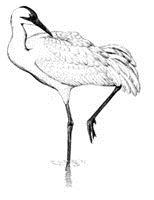North American Crane Working Group

Proceedings of the North American Crane Workshop
Date of this Version
2005
Document Type
Article
Citation
Nesbitt, S.A. An obligation to publish. In Chavez-Ramirez, F, ed. 2005. Proceedings of the Ninth North American Crane Workshop, Jan 17-20, 2003. Sacramento, California: North American Crane Working Group. Pp. 1-2.
Abstract
To be justifiable any wildlife study should strive to attain and describe new knowledge or refine existing understanding. Published results of field studies are often the products that conclude the study, though not always. But, as E.O. Wilson wrote in Consiliance: The Unity of Knowledge, “One of the structures of the scientific ethos is that a discovery does not exist until it is safely reviewed and in print.” Putting knowledge to page requires effort and, frequently, the abandonment of ones own ego. However, ego notwithstanding, this is not the only reason to publish research findings. Whether we are trying to improve the management of a hunted population or to restore an endangered one, we should want to elucidate what we have discovered. This collected wisdom is the science of wildlife management and it is what society depends on to progress up the ladder of understanding and resource preservation. Science as a discipline cares little what we think, and only slightly more about what we know. In reality science only fully accepts what we can prove, and we can consistently prove only what is true. The body of science is formed from layers of collaborative knowledge. Each of study, whether innovative or prosaic, dazzling or mundane, should become part of the body so others can draw upon it, as we have, to move understanding forward. The need to inform others of the truths we have found is perhaps our first responsibility to the natural resources we study. A second responsibility is for us to account for the capital used to find the answers to the questions we posed. Put simply, we must justify the money we have spent. Most government agencies or granting entities have built-in reporting requirements, which minimally address this need. But we should strive to go beyond the minimum accounting responsibility and make our new knowledge available to the broadest audience possible. Using scarce conservation dollars also carries the responsibility to maximize the benefit through the publication of study results in rigorously reviewed journals.
Included in
Behavior and Ethology Commons, Biodiversity Commons, Ornithology Commons, Population Biology Commons, Terrestrial and Aquatic Ecology Commons


Comments
Reproduced by permission of the NACWG.